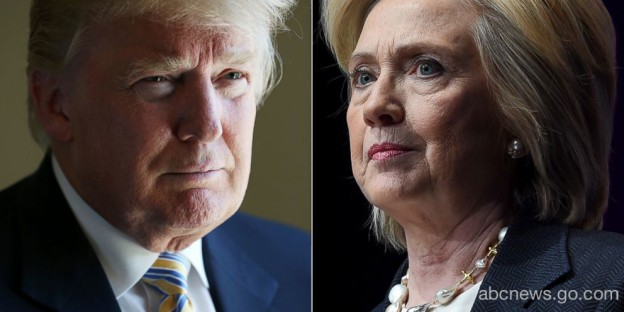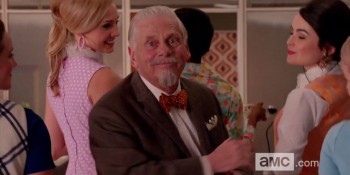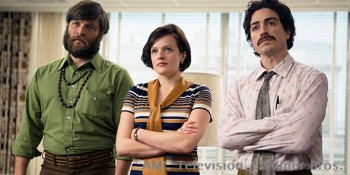Politics is a passion of mine. I’ve always been interested in world events and the players who shape them. I don’t see politics as a sport or an interest or a hobby. This statement may anger some people I care very much about, but I must say it: politics isn’t something that one can have the luxury of “not being interested in.” Politics shapes our society: it sets the terms of our freedoms, our opportunities, our successes.
I earned a degree in political science and I have worked in a political environment for nearly a decade. I study politics every day — something far above and beyond the level of engagement I think every citizen should have. So maybe I talk a bit too much about politics for your tastes. That’s OK, and I’m sorry for being overbearing.
But I do think there are some critically important things we do need to talk about during this presidential election cycle.
I am a Democrat, a progressive, a liberal. I am strong in my convictions and I can lay out arguments as to why I stand for the positions I support. Nonetheless, I am always open to new information and different perspectives, meaning I have not always held the same opinions and won’t always hold the ones I hold now. But I am constantly in search of what is right for me, and in that search, I have always — since 1988, at age 4 — found my home in the Democratic Party. My loyalty, though, is not to the party, which may change, but to the ideals currently underlying it.
I have known many Republicans and even been friends with a few. Despite our differences, I have always been able to find common ground with everyone I’ve ever engaged in an extended conversation about politics. I truly believe that if we sit down and listen to one another, we can continue to have a beautiful, vibrant, incredible United States of America. After all, that has been our map to success thus far.
But there is a stark divide in this country. It is a divide that has always existed but only sometimes rises to the surface like it has now. It’s a divide that is not attributable to politics or government or banks or the establishment. It is a divide that is genetically coded into human beings:
We are divided by an instinctive drive to hold the levers of power for ourselves and for those we identify as a part of our tribe.
This drive to horde power is something those with the power can ignore when they are unchallenged. But every few decades, societal changes compel those with power to reckon with the prospect of sharing that power with a new group. It happened in 1776 when colonists rebelled against the king, in 1828 when the common man rebelled against old-money politicians, in 1860 when the enslavement of man was no longer sustainable, in the early 1900s as Roosevelt challenged the monopolies of business, in 1932 as the other Roosevelt secured a New Deal for the impoverished, and in the 1960s as we began to confront our festering racial disparities.
In 2008, the United States of America elected a black man to be president. The country convulsed with pride and patted itself on the back about how it had finally put racism firmly in the past. But over the subsequent seven-plus years of the Obama administration, as the demographics of the country have continued to change and as those who have been without power for centuries see a beacon of hope that they too may one day rise up, the power structure has been challenged again.
The old guard feels the threat, and the wheels of resistance have churned into motion. Government has ground to a halt. And a very bad man is channeling the fears and anxieties and disappointments of a portion of the nation that has never had to worry about these issues before into a toxic and dangerous presidential campaign.
I do not blame my Republican friends for this state of affairs even though it is the Republican Party that is preparing to nominate this very bad man for president. Like many of my Democratic and independent friends, most Republicans just do not prioritize their time to critically analyze what their political allies and heroes truly stand for; they have other things going on in their lives, like day-to-day struggles to feed and clothe their children or the demands of an 80-hour-a-week job. Unfortunately, that ignorance — and I mean a lack of extensive, specific knowledge, not an implication of stupidity or laziness — is easy to exploit so that those with power can keep the power.
There’s no delicate way to say this, but I think it is a self-evident truth: those who have held power in the United States of America since its founding have been straight, white, male Christians. Let me be clear: straight, white, male Christians are not bad people (hell, I am three of those four things myself). But they’re also not better people; they’re not people who are more deserving of power than any other group of people. And their behavior and their instinct to maintain that power is not a product of their sexuality or their race or gender or religion, but of their human nature. That is to say: if any other group of people had founded this nation, that group would behave exactly the same way; for evidence, look at the Middle East, East Asia, Africa, or anywhere else on the globe.
If there is some higher calling for humanity, it must be to overcome at least some of our animal instincts in order to create a less violent world. We can codify those efforts through morals or religions or constitutions, refer to them as God’s calling or as humanist rationality. The terminology and the structures don’t particularly matter, but I believe a vast majority of humans agree with me that less violence — not just physical violence, but mental cruelty, emotional warfare, and every other manifestation of unkindness — is a common goal that we can agree on.
Unfortunately, the temptations of power can blind us from seeing when we are working against that goal. As I said earlier, I have been thinking about these things on-and-off-but-mostly-on for nearly 30 years. And I have recognized some very ugly truths about the political spectrum.
To be a conservative is to believe that the current power structure in society does not need to change. This is not an opinion, but an actual definition of the term. A conservative believes that the status quo serves society best. Therefore, it makes sense that conservatism attracts those who already hold power.
Conservatism also attracts those who don’t appear to hold power, in the sense of occupying high government posts or having millions of dollars, but who benefit by being a part of the tribe of people who do. These people — the hard-working, blue-collar, good people who populate small towns across White America — fear that the power and security they do have, no matter how little, will be taken away by some other group.
This is where the concept of “white privilege” enters the conversation, and that is far too expansive a topic to dive into here. Suffice it to say: poor white people (again, I have been in that group) face very real challenges and struggles in their lives, but their race is not one of them. And because we share the same skin color as those who have held power, we are welcomed into the tribe. The arguments of conservative politicians include us in their vision, even as conservative policies continue to subjugate the poor to the power of the old guard.
When a power shift, real or perceived, reaches a certain tipping point — say, with the election of a black president — maintaining the status quo no longer serves the interests of those who have until now held the levers of power. In this climate, those who used to be drawn to conservatism feel that ideology was ineffective at protecting them. Consequently, they turn to conservatism’s cousin on the extreme right wing: reactionary politics.
Reactionary politics is a type of populism. Populism is an appeal to the broadest swath of people possible: a political approach to complex problems that offers simple, and therefore incorrect, solutions. Populism takes several forms, but one form is the exclusionary populism of reactionary politics.
Reactionary politics thrives on identifying an enemy that can be blamed for our problems. Because our most basic human instincts tell us to trust those who look like us and distrust those who don’t, reactionary politics almost always places the blame for our problems on those others. That simple answer is very comforting and appealing to those who feel down and out. And suddenly, our agreement to seek a kinder, less violent world is clouded by the promise of regaining that power we once seemed to have.
The man leading the field for the Republican nomination for president in 2016 is practicing reactionary politics. Even in times when reactionary politics are not in vogue, this region of the political spectrum always has inhabitants. These include the anti-immigration advocates, the Christian Dominionists, the white nationalists, and the outright racist white supremacists.
Even if Donald Trump himself is not a white supremacist, his rhetoric and policy proposals match the reactionary dreams of the racists and the bigots, so this is naturally his base of support. Despite being on the right wing, reactionaries like Mr. Trump do not need the same ideological purity as traditional conservatives to be accepted by the voters. They just need to assure the public that they will turn back the clock on all the “bad” things that have happened in the past few years. And in times of change such as this, the reactionary base of support expands by attracting the angry and the hurting — people who do not identify as racist — good people who are taken in by a false promise that if we just strip the power back from those other people, everything will be fine again.
The Republican Party has never been comprised of a majority of racists. But it has been the party of conservatives — status quo protectors — whose natural allies are the reactionaries. The politicians in the Republican Party have known this fact and they have long supported power-structure-protecting policies couched in friendly, appealing language (tax cuts that disproportionately benefit the wealthy, “smaller government” that creates homogeneous governmental units where it is easier to keep a grip on power) while at the same time holding onto the support of the reactionaries with coded language and dog whistles (“taking the country back” and “protecting our values”).
(Please don’t interpret this to mean that I believe my Republican and conservative friends identify that way because they want to protect a pro-white-male status quo; I know that they believe in tax cuts and smaller government and other conservative policy positions because of a belief that they are the best tools for a just society, just as sincerely as my friends on the left believe in their principles.)
Now, the polish is off, and the reactionaries see no need for coded language. Now, Mexicans are rapists, Muslims should be deported, and Christians are under constant, premeditated attack. Reactionary politics is appealing to our basest instincts: to blame the new, rising classes for our problems when the real culprit has been the structure that made us feel empowered while we were really being exploited by those in control.
A lot of ink, pixels, and breath have been expended in comparing Mr. Trump to such infamous figures as Adolf Hitler and Benito Mussolini. Such comparisons have been deployed far too frequently in our political discourse over the past decades — so frequently that we are now in a boy-who-cried-wolf conundrum. In the case of Mr. Trump, there really is evidence that a wolf lurks in the forest. It is simply an historical fact that the fascist dictators of Europe rode a wave of reactionary politics to power. The threat is real.
To be a progressive, on the other hand, is to advocate an inclusive power structure. It is the reason the Democratic Party of the 1960s onward has been an alliance of women, people of color, those of faiths or nonfaiths that emphasize inclusion, the non-cisgendered and non-heterosexual, and other historically excluded groups.
It’s certainly true that some in the Democratic Party simply want access to power so they can deny it to others. That’s one of the reasons why my loyalty does not lie with the party, but with the ideals. Progressivism as an ideology rejects the notion that expanding who has access to power is a zero-sum game that results in less power for those who used to be in charge. Alternatively, progressives can acknowledge the zero-sum nature of power but choose to reject the idea that one group or another should have exclusive access to that power. Maybe spreading our power around does dilute the power for ourselves or does make our success more difficult, but damn it, that’s the right thing to do for humanity.
So the thesis here is that I am asking you to reject the conservatives and reactionaries who would protect the old, exclusive power structure. But isn’t Hillary Clinton a part of that power structure? Isn’t Bernie Sanders the only candidate in the race who is challenging the status quo while rejecting reactionary politics? It’s a tempting thought, but it just isn’t so.
It is certainly true that Mrs. Clinton has had power for decades: as First Lady of Arkansas, First Lady of the United States, U.S. Senator, and Secretary of State. But holding power is not the same as denying power to others. Throughout Mrs. Clinton’s public service, she has supported policies that expand opportunities to women, to people of color, to people with different genders and different sexual orientations and different abilities.
And, importantly to me as a student of politics, Mrs. Clinton has fought those battles smartly, with a long-term strategy to expand opportunity to more people.
Of course, it is true that a long-term strategy is ugly when looked at over the short-term. In retrospect, the Clintons’ support for aspects of welfare reform, a disparate criminal justice system, and other Third Way policies don’t fit the mold of progressivism. But those compromises were elements of political relationships that allowed for the expansion of the Children’s Health Insurance Program and the earned income tax credit for low-income Americans. I acknowledge the tragic reality that a smart compromise for a comfortable politician can still be a life sentence for a troubled teenager. But in a diverse, free society in which half the elected Congress supports even harsher, race-based punishment, you are sometimes lucky to be offered half a loaf.
It is also true that Mrs. Clinton has changed positions over time. The cynic finds an easy way out when he claims that someone changes her mind because she gets a campaign contribution. And sometimes the cynic would be right. But I urge you to rise above cynicism and do a deeper, impartial examination of the entirety of a person’s career and ideology before diagnosing a disease.
Consider that another trade-off of being a successful politician who is able to fight for change is the ability to get elected. And for the entirety of Mrs. Clinton’s career, getting elected has required a lot of money — amounts of money that are only obtainable from large corporations. That paradigm may be changing now, as the success of Sen. Sanders’s grassroots fundraising shows, but it’s not how it has worked for 30 years — and I must remind you, it hasn’t worked yet in a presidential campaign. It’s a terrible system, but let’s indict the system, not the candidate who has no other way to succeed.
I do not believe Mrs. Clinton has changed policy positions due to campaign contributions or because she has no moral compass. In fact, I do not know anyone who was born with all the right opinions. And I don’t know any better sign of a mind that is closed to facts and self-examination than a person who clings to outdated perspectives. So when I look at the pattern of Mrs. Clinton’s policy shifts through her 30-year public life, I see a woman who has always shifted to the more progressive position. She is evolving with the nation, with me — with you.
“But Bernie has always held these progressive ideals!” In many instances, yes. In some others, no. And in terms of translating those ideals into policy changes … I’m still waiting. I am hesitant to use the names in the same sentence because their intentions are so diametrically opposed, but Mr. Sanders, like Mr. Trump, is a populist. His brand of populism is inclusionary instead of exclusionary, but it is still offering simple solutions to complex problems.
Sen. Sanders is a good, honorable man, and a reliable progressive. If you choose to support him, I respect that decision. But, as I urged with Mrs. Clinton, please survey the entirety of Sen. Sanders’s public life, including his ability to effect tangible change.
Polls today that show Sen. Sanders beating Mr. Trump by larger margins than Mrs. Clinton are simply fantasy, as Mrs. Clinton has had her numbers suppressed by national-level GOP attacks for 24 years, whereas Sen. Sanders hasn’t even seen the start of it. Consider the political reality he will face when the Republican Party unloads its full arsenal on a man who most people believe is a socialist, whether the label is accurate or not, in a country where Gallup found that 50 percent of people would never vote for a socialist.
Mrs. Clinton is not an ideal candidate. She has made too many poor decisions that have left her exposed to questions about her trustworthiness, even if those questions are almost always a part of a long-term, coordinated political sabotage. But I have not yet developed the ability to conjure from thin air the perfect candidate, so I’m left evaluating the choices I do have. If you are a dedicated progressive, I may be asking you to take half a loaf by voting for Mrs. Clinton. But politics is people, and if you want purity, you’re going to have to change human nature.
My appeal is this: understand what conservatives, reactionaries, and progressives stand for. Then calmly, coolly consider the consequences of a reactionary being elected President of the United States in 2016, and determine the best strategic choice for preventing that outcome.
I hope this long-winded screed hasn’t been too insufferable. Many people are built out of genetic material that makes it easier to set all these issues aside than to fret over them. But for whatever reason, I cannot. I have a biological need to spew this out into the world, imperfect as it is, for my own selfish reasons. To write this feels cathartic for me. I think it’s because the United States of America is my home. And I can’t deny that I am indeed only a human being, and that means I have an instinct to protect my home.
So please reject reactionary politics. Mr. Trump the Person is only fighting for the interests of one person: Mr. Trump. Mr. Trump the Candidate is using reactionary politics — an appeal to white power — to secure those interests. We must save this nation. This is not a drill.







